Beyond Beauty: Taiwan from Above is not just about pretty aerial pictures
The genius of Beyond Beauty: Taiwan From Above, the aerial documentary currently breaking records at the Taiwanese box office, is that it deliberately misleads its audience. Even more than a celebration of nature’s beauties, it is a deeply disquieting wake-up call, urging Taiwanese to develop their enviromental consciousness.
Judging from the movie’s marketing campaign, one would hardly guess that Beyond Beauty: Taiwan From Above (看見台灣, Seeing Taiwan) will take you to some really dark places and ask discomforting questions. In the official trailer, it’s mostly gorgeous images and majestic music.
In fact, during the film’s first ten minutes or so, I felt like in a Wagnerian big screen opera, flying with the Valkyries to the highest mountain peaks and beyond. It’s pretty awe-inspiring.
Then, slowly, humans start appearing. At first, they are as insignificant and tiny as ants. Next, we see them taming nature and living off the land: Farmers, fishermen. Finally, the film moves into the cities, and it is here that it quickly becomes obvious that Beyond Beauty: Taiwan From Above will not shy away from pointing out the culprits who are busily destroying Taiwan’s natural equilibrium.
It’s us.
More photos on the official movie Facebook page
After watching, you will probably never again look the same way at Taiwan’s…
- Betelnut, tea and cabbage plantations in the high mountains (lead to more landslides)
- Cross-island highways and mountain dwellings, like Taiwan’s „Little Switzerland“ (precipitously situated and in constant danger)
- Fish farms (suck up ground water, cause land subsidence)
- Concrete tetrapods (more than 50% of Taiwan’s coastline is covered with concrete)
- IT industry (uses 16% of all energy, produces toxic waste)
- Cement, sand and gravel industry (needlessly disfiguring mountains for profit’s sake)
- Wastewater (often flowing untreated into the rivers and out to sea)
- Coal power (the Taichung power plant is the world’s single largest CO2 emitter)
…and many other things that are usually hailed as signs of „development“, and thus as good by definition.
Seeing is believing
Although most viewers will be surprised at what they learn, Beyond Beauty: Taiwan From Above does not really tell anything new. All the facts have been well known for a long time to enviromentalists, affected citizens, probably even to some reporters and government officials.
But never before has anyone argued the case so spectacularly. Telling and warning is not enough. Director Chi Po-lin has gathered the visual evidence that is neccessary to make people see the problems and their magnitude.
Because we aren’t worried about what we don’t know, and we don’t know what we don’t see.
For example, Chi’s aerial images of black streams of wastewater, spilling from a Taoyuan river into the pristine ocean and forming a bizarre kind of Yin-Yang-pattern, will imprint themselves on every viewer’s mind. No lecture, article or protest march could ever achieve this.
Welcome to the real world
For me, Beyond Beauty: Taiwan From Above touched on another aspect that I find really worrying.
It seems to me that many people in Taiwan (like in other parts of the world, but we are talking about Taiwan here) are spending their lives in an almost completely artificial and de-naturalized environment, going to great lengths to keep nature as far away as possible.
„Development“ in Taipei, nature vs. concrete:
I am thinking about windows that don’t let in sunlight, A/C systems that replace a breeze of fresh air, concrete in parks where there could be lawn.
It’s a world where plastic bags, disposable chopsticks and lunch boxes appear out of nowhere and vanish without a trace.
In some ways, Taiwan’s ubiquitous 7-11 stores are the perfect embodyment of this mentality. Always clean, always bright, full of convenient, plastic-wrapped stuff, cute, commercialized and standardized.
Don’t get me wrong, I appreciate 7-11 as much as the next guy. I just would not want to spend my life living in one.
Nature, to many people, primarily seems to be something that sullies their concrete environment and has to be gotten rid of with plastic brooms.
I think this is sad and deeply worrying.
Chi Po-lin (it’s his actual name and translates as „zeppelin“) probably sees something similar when he observes that, with more than 50% of Taiwan’s coastline disfigured by slabs of concrete, „we have built a wall to seperate us from the sea.“ Which is not so ideal for an island nation. „The ocean is the road through which we can reach out to the world.“
Amongst many other things, Beyond Beauty: Taiwan From Above also serves to remind the audience that, hard as we try to keep nature out, modern life still depends on nature’s life support systems. If we continue to treat her badly, „like too many children sucking on their mother’s breast,“ the Earth will not only fail to render her essential services. She will also strike back as she whinces in agony.
Just think about the increasing number and strenght of typhoons and rainfall, ever more devastating mudslides, rising sea levels, coastal land being submerged because of subsidence, diseases spreading in monocultures.
And then, says Chi, we tend to blame nature for the very problems that we have caused ourselves.
Now what?
While Beyond Beauty: Taiwan From Above does an excellent job raising awareness, I found it to be a bit lacking in pointing out alternatives, showing possible ways out of our dilemma.
Late in the film (like The Return of the King, it has too many endings and goes on long after you think everyting has been said), Chi introduces two organic farmers who found the way back to traditional methods of production.
While I like their approach, I do not think they can serve as a model for most Taiwanese who are, after all, mostly busy in offices, struggling and making ends meet for their family’s well-being.
At least, one of the farmers makes the perhaps most poignant statement of the film:
我們需要的不多,就是想要太多了。
„We actually don’t need all that much. The problem is that we want too much.“
Make a real difference
I don’t consider myself a great example, and I am not suggesting that I am leading my life in a better way then anyone else.
That said, what can one do, once the consciousness has been rattled awake?
These are some things that are routinely suggested:
- Carry reusable chopsticks
- Turn off the engine at red traffic lights
- Reject paper cups and plastic bags
Use toilet paper from both sides(no, enough of that)
The thing with little well-meaning steps like these is that, even if you follow through, you will not actually make a difference. You will not be able to offset the damage that others are causing at the same time.
I think that the only way to actually make a difference is by reaching out to other people. Just like Chi Po-lin dedicated his life to making this movie instead of sitting at home and just feeling miserable.
They did it: Protests made the government cancel the Kuokuang naptha cracker plans in Changhua County.
More than 10.000 people, many of them farmers, protested against the construction of new chemical factories near…
Posted by taiwanreporter on Sunday, November 14, 2010
- Tell people that you plan to go to a demonstration, and ask them to join you
- Tell that idiot walking in front of you to stuff his garbage anywhere, but stop littering
- Ask others why they don’t carry reusable chopsticks
- Tell others that next time, you plan to vote for a politician who actually cares about the really serious problems
- Write letters and post comments about what you don’t like instead of just clicking „like“ where everybody thinks like you anyway
Do whatever you can, just don’t shut up and don’t give up.
Think of Chi Po-lin, who gave up his safe government job and pension in order to make this film. It’s not perfect, and not everyone will like it, but who cares. He is even giving special screenings for the Premier now. While you are reading this, he is making a hell of a difference.
About me
I am a German reporter living and working in Taiwan. Read more English posts on this otherwise mostly German blog. You can also follow me on Twitter, Facebook, and Google Plus.
English posts you might want to have a look at:
- Why Taipei doesn’t get a second forest park, but just another giant mall
- New highway to spoil Taiwan’s East Rift Valley?
- Why is there international criticism of the executions in Taiwan?
- Cheap labor, no rights: Taiwan’s 2nd class foreigners
Das könnte auch interessant sein:
- Frösche und Filme: Taiwan in Hamburg
- Taipei Dome protests: How citizens don’t get a second forest park, but just another shopping mall
- Martin Scorsese filming „Silence“ in Taiwan: This is what it’s about
- Seltene Chance: 80 Niedersachsen erleben Taiwan von oben
Powered by YARPP.


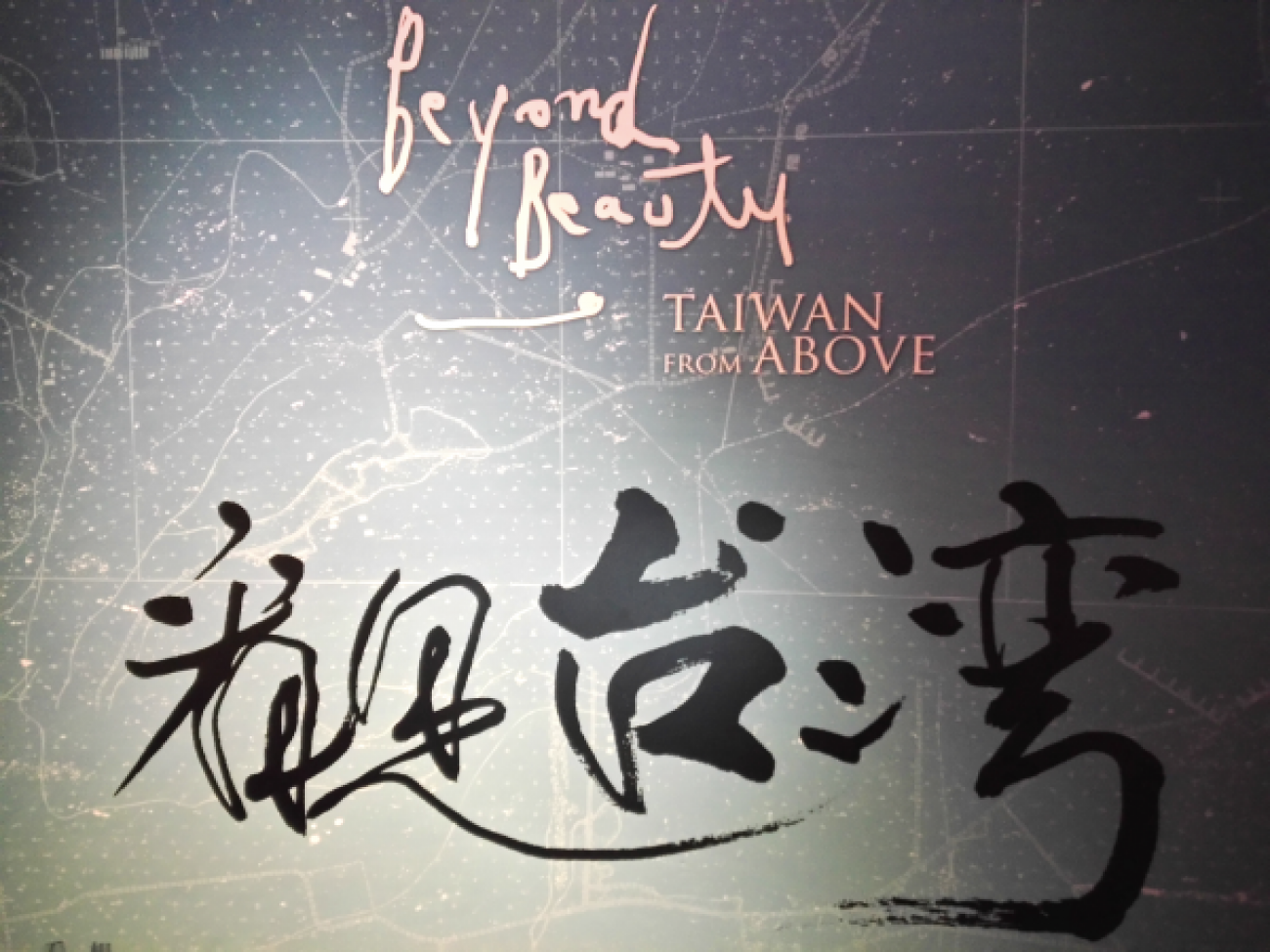
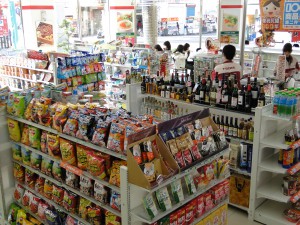
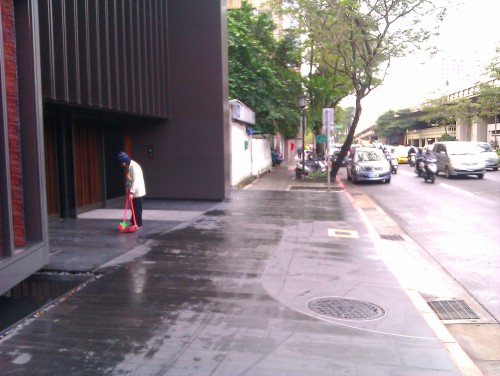
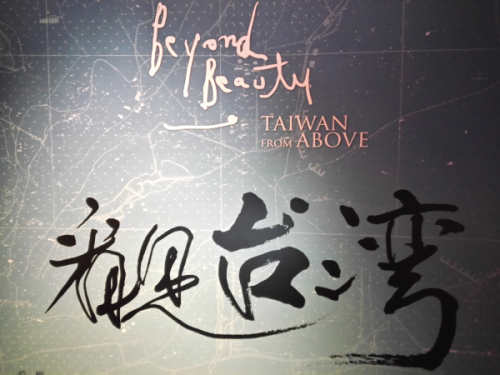
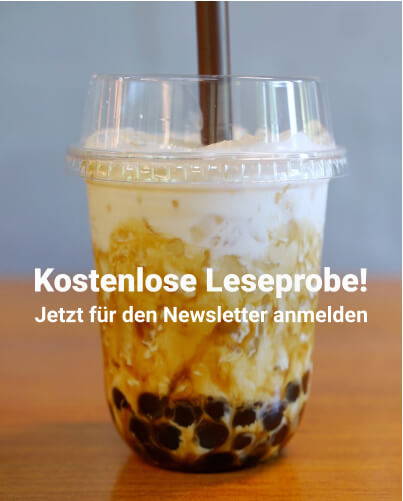

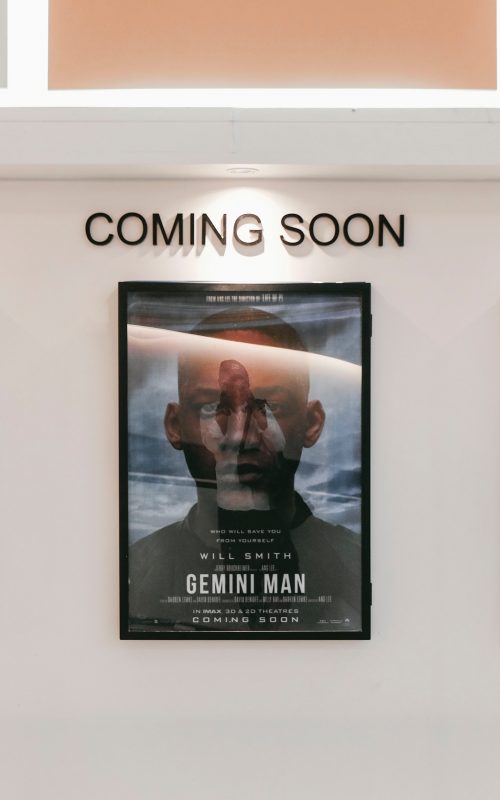
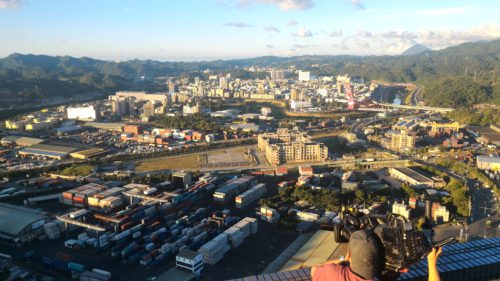

12 Antworten
I might stear some controversy here, but reading the blog, I see some typical human behaviour.
Everybody admits to like (or even claim) to be environmental friendly with the little things and at the same time likes to have a good live, convenient, safe.
I’m the same, I admit, however I try to safe wherever I can.
Hold your cheers for the moment because there is a downside.
What is required for this?
Industry!
Most of what I read on how nature is abused is aimed to development and thus industry. Don’t forget, also farming is an industry and your report and the movie showed it, it is not necessarily environmental friendly.
But where are people focusing towards?
The „heavy“ industry in Taiwan, and for this they are organizing protests, driving people across the island for some raids. Claiming that all negative impact on nature is from this „heavy“ industry.
When we look at the industrial development in Taiwan durign the last 10 years we see a clear mismanagement. Taiwan government, both major parties, focused on what some groups with influence within the people want, not whats good for the country.
Thus we see that old industrial plants are still under production instead of being replaced by modern technology, plants like the ones planned by KuoKuang.
So, what’s the achievement here?
The environmentalists who pretend to safe the environment are the ones – in my opinion and as per my experience – who are harming nature by not allowing new, cleaner plants be built, but rather leave the old ones running, which are higher in pollutant per product unit.
At the same time they are proposing to change to the „clean“ industry of electronics. Your report mentioned it as well, the electronic industry is not clean, you just don’t see how much energy and chemicals they use.
The other downside of them is that not much work places for humans are needed within.
So, in my opinion, the focus of development of Taiwan was shifted away from a healthy balanced development towards a one sided, not admitting that the whole picture need to be correct, not only one detail painted colorful while the other one is only black.
Yes, some might say, thats someone who worked in that industry, true, I am.
And therefore I know what would be possible to realy safe environment and make achange to the better.
Look at Germany in the 80’s and early 90’s. We had (yes, i’m also a German) sour rain, dying of the forrest,etc. and look at it now. Clean air, rivers you can swim in, forrests flourishing….and an intact and competitive industry.
Why?
Because the right decission where made (not always) towards a higher investment within the industry for a cleaner production.
And there, I’m not talking only on the „heavy“ industry.
Now, a lot of people will say, ooohhh, thats costly, people can not afford it.
The same argument was brought up in Germany at that time, we loose jobs, we get marginalised within the world economy and so on.
I think Germany is proove that this is not correct.
So, in my opinion, if people not focusing only on enironmental saving by reusing job sticks (still they shall do) but accept the fact that new „heavy“ industry investments will make a change for the society and environment on the long term, with the negative impact, for a while, that living expenses will be higher, Taiwan people can make an impact towards the better.
But for this, get out of your thinking box, some „experts“ put you in, and see the full picture.
Live in Taiwan is beautiful, convenient, safe, and in my opinion it can be even better, by developing the countries „heavy“ industry into a cleaner future instead of stopping all investments while all problems also due to farming (lowering of ground water is one item) are blamed to the „heavy“ industry.
I’m sure this can happen if the leaders are shown the direction by real experts, not only publizists with narzistic tendancy, and with this we can see a more beautiful Taiwan for the generations to come and my retirement home to be.
Thanks for your feedback Berhard. Important problems never have really simple solutions, how true.
and thank you for writing this. I enjoyed reading it. Although I have not seen the film, I agreed whole-heartedly with your opinions of the problems people here are experiencing in Taiwan – people are living in a de-naturalized environment, becoming ignorant of the values that nature brings, and becoming highly materialistic.
Thank you for the comment, glad I am not the only one to see it like this.
and thank you for writing this. I enjoyed reading it. Although I have not seen the film, I agreed whole-heartedly with your opinions of the problems people here are experiencing in Taiwan – people are living in a de-naturalized environment, becoming ignorant of the values that nature brings.
Wow, I really like how this film is made…it isn’t a typical propaganda that focuses on beautifying the image of Taiwan, but rather, displays the „truth“, and with this „truth“, Taiwanese people can become more aware of embracing what is good to our land as well as developing the awareness, and perhaps, improve of what it is not. I’m planning to watch this as soon as possible!
Hi, I wanna ask if you can leave a review of this film on IMDB (like: http://www.imdb.com/title/tt3316302/). Thanks.
I think you pointed out every important fact, that the film mentioned. After I watched it, I went to Yeliu. There I came across of what was mentioned in the film and I had to think a lot about it.
But in one point I disagree with you: I actually think, that it’s starts with us. As you mentioned, if we behave „better“ and develop more awareness for our living environment,only then we will start to claim responsiblity by others.
Just to mention „simple“ things that I observed here:
– how people use air conditioners,
– how much garbage is produced because they never bring bags for shopping,
– eating out instead of cooking with the family
– driving short distances
…
I mean we prefer convenience, and we have to work on ourselves to get rid of it as we do so by doing sport to get rid of fat and be more healthy.
Thank you for commenting.
Yes, I agree that change has to start with everyone individually. But if it stops there, it will not make a difference in the big picture. Actually, I don’t think we disagree that much.
Do you mean „disposable“ or rather „reusable“ chopsticks?
Of course „reusable“! Thanks for pointing out, corrected.